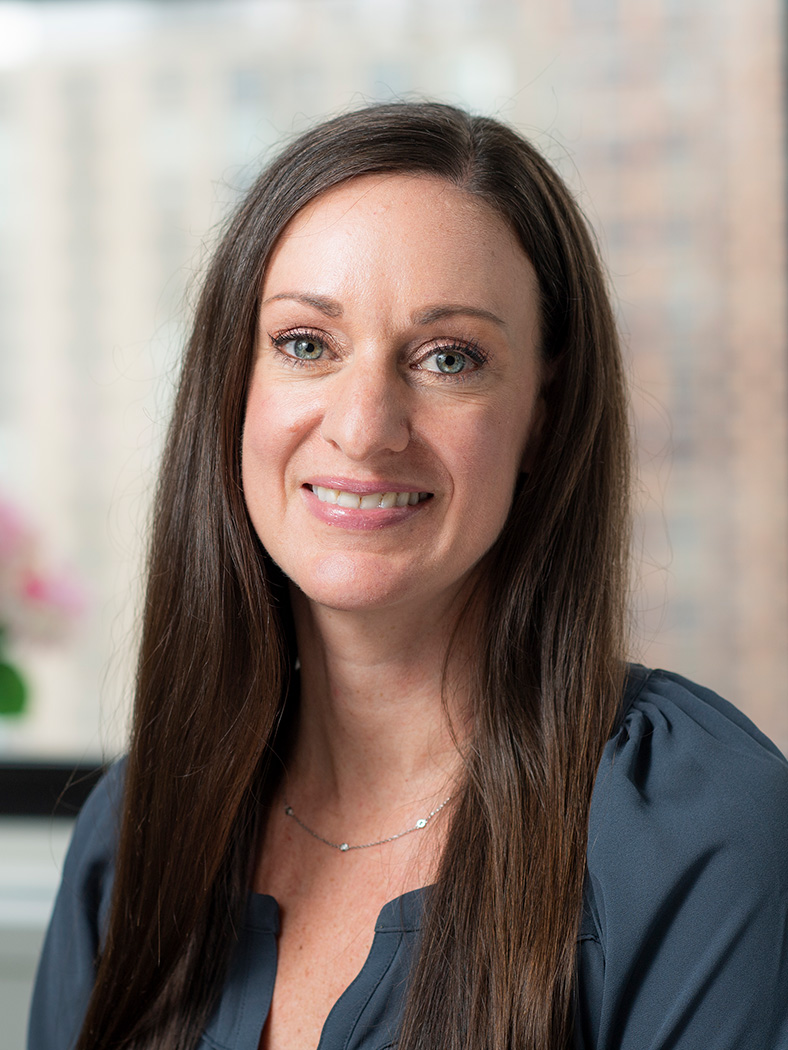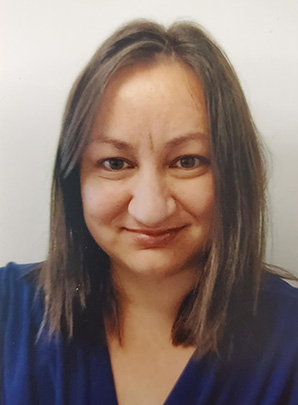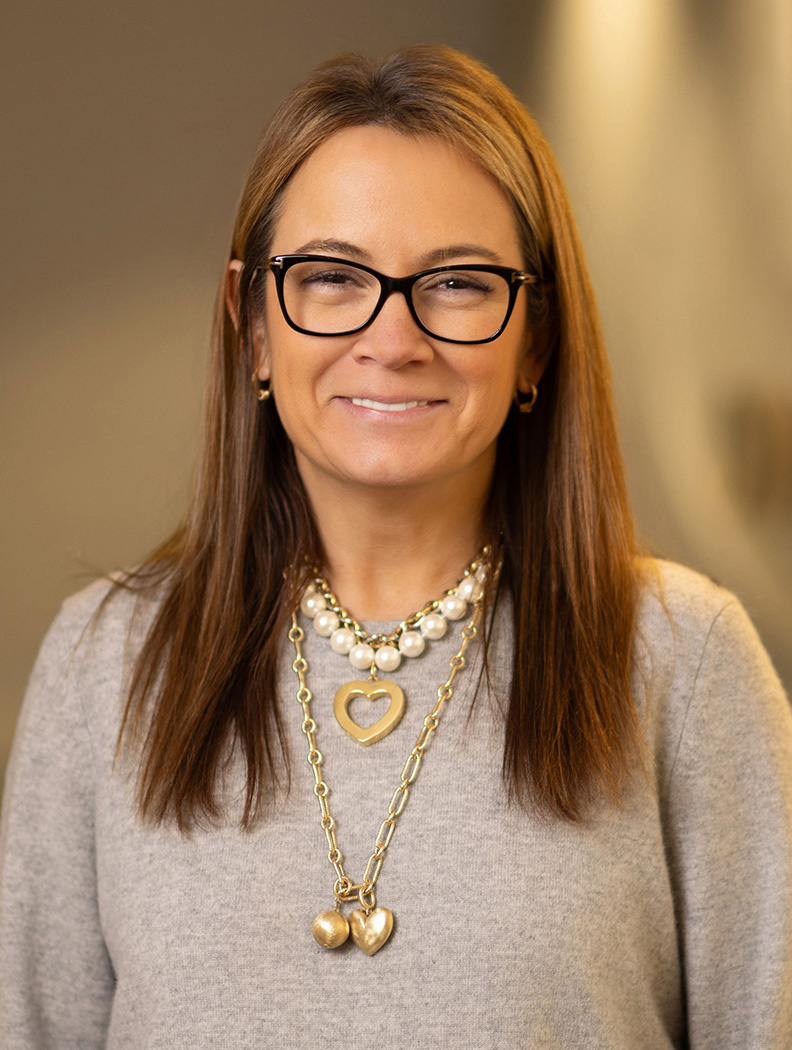Resource Navigation
Learn more about how CancerCare Resource Navigation can help you address barriers to care.
Support Groups
Connect with others in our free support groups led by oncology social workers.
Online
Live
- Living Beyond Cancer: General Post-Treatment Survivorship Support Group (New York, Video)
- Living Beyond Cancer: Young Adult Post-Treatment Survivorship Support Group (New York, Video)
Connect Education Workshops
Listen in by telephone or online as leading experts in oncology provide up-to-date information about cancer-related issues in one-hour workshops. Podcasts are also available.
Podcasts
Post-Treatment Survivorship
- Breast Cancer in Men: Diagnosis, Treatment and Survivorship, Mar 19, 2025
- Current Perspectives on Cancer Survivorship, Sep 10, 2024
- Young Adult Survivorship: Fertility, Sexuality and Intimacy, Feb 9, 2024
- Current Perspectives on Cancer Survivorship, Nov 28, 2023
- Metastatic Triple Negative Breast Cancer: Strategies to Cope, Oct 25, 2023
- Current Perspectives on Cancer Survivorship, May 2, 2023
- Current Perspectives on Cancer Survivorship, May 3, 2022
- Current Perspectives on Cancer Survivorship, Feb 9, 2021
- Current Perspectives in Cancer Survivorship, Jun 16, 2020
- Cancer and The Workplace: Understanding Your Legal Protections, Mar 25, 2020
- Understanding the Costs of Care and Your Health Care Coverage, Mar 18, 2020
- Mind Body Techniques to Cope with the Stresses of Cancer, Nov 15, 2017
Publications
Read or order our free Connect booklets and fact sheets offering easy-to-read information about the latest cancer treatments, managing side effects and coping with cancer.
For Any Cancer Diagnosis
- After Treatment Ends: Tools for the Post-Treatment Cancer Survivor
- Coping With Sadness and Depression After Cancer
- Coping With Sleep Difficulties During Cancer
- Coping With the Fear of Cancer Returning
- Coping With the Loss of Fertility
- Counseling to Better Cope With Post-Treatment Survivorship
- Emotional Concerns After Treatment Has Ended
- Intimacy and Cancer
- Staying Physically Active During and After Cancer Treatment
- Survivorship Care Plan: Follow-Up Care and Returning to Work
Ask CancerCare
Every month, featured experts answer your questions about coping with cancer including specific answers to questions asked by caregivers.
For Any Cancer Diagnosis
- Q.
What support services should a cancer survivor look for after finishing treatment?
A.A variety of physical and emotional responses can come up after treatment ends. Many people expect for things to go back to “normal” right away, but the reality is that it takes time for your mind, body and spirit to recover from cancer treatment. It can be a scary time for patients when you suddenly have much less interaction with your doctors. Reaching out for support is a very healthy way of taking care of yourself as you continue to heal from treatment. Engaging in certain activities can help you to regain some sense of control and be an active participant in your recovery.
Take a moment to think about the people who have been helpful to you. Your “team” includes the doctors, nurses, social workers, alternative health practitioners, other survivors and the family and friends who surround you. Defining and understanding the distinct role that each person plays is beneficial so you know where to turn when you need help. Who can answer medical questions? What programs exist to help financially? Who do you approach when you need a good listener? Keep in mind that some friends and family may think that everything is fine now that you’re treatment is complete. You might have to be up front about still needing support during this time in your recovery.
The following services may be helpful to consider:
- Ask your doctor about a survivorship care plan. This can give you a detailed timeline of follow-up tests, follow-up recommendations, after-care planning, how to address ongoing side-effects or medical issues, etc.
- Seek out peer support through support groups or survivor matching programs. This allows you the opportunity to learn from others and find emotional support from people who’ve also been through treatment and are adjusting to the post-treatment phase.
- Individual counseling provides a space to process the many complex feelings that come with cancer survivorship, such as sadness, fear/anxiety, and anger.
- Financial assistance programs are often available to help with some medically related expenses such as co-pays for medication, as well as out of pocket costs associated with transportation.
- Mind-body or alternative therapies such as meditation, yoga, Reiki, acupuncture or massage can help you alleviate side effects such as fatigue and pain. Relaxation techniques may also help you manage feelings of anxiety.
Taking inventory of available supportive services is an important first step to take. Think about what services would be a good fit for you given your current needs. If it’s not clear or you are having trouble finding local services, speak with an oncology social worker who can help guide you.
CancerCare offers a variety of services for cancer survivors such as individual counseling, educational material and online support groups. Learn more about our services on our website or call our Hopeline: 800-813-HOPE (4673).
- Q.
I've finished treatment and now I feel like I'm on my own. Are there things I should be doing?
A.Finishing cancer treatment often brings mixed feelings. A sense of relief and feelings of accomplishment are normal; so, too, is uncertainty about the future. Your instinct to prepare in some way for your survivorship is a good one. Here are some steps you can take to keep both your mind and your body healthy as you continue to work with your medical team.
Ask your doctor for a Treatment Summary. This should include:
- Your type(s) of cancer with the date and stage at diagnosis
- Types of treatment received (surgery, chemotherapy drugs, radiation doses and tests performed)
- Complications experienced (side effects, transfusions, hospitalizations)
- Other services used (physical therapy, acupuncture, herbal)
Discuss with your doctor what your Follow-Up Plan will be. This should include:
- Future schedule of visits (time and date)
- Who will deliver follow-up care (and where)
- Tests that will be done and why (surveillance and preventative)
- Assessment and treatment for long- or late-term effects (e.g., lymphedema, depression, pain)
- Evaluation of current health behaviors and promotion of healthy life style
There are great resources available that can help you organize all of the above information. The LiveSTRONG Foundation has developed worksheets and a Survivorship Notebook. The National Coalition for Cancer Survivorship (NCCS) provides information about Living Beyond Cancer.
You mentioned feeling “on your own” now that your treatment is complete. This is a common feeling when treatment ends, and it’s good to know about the different types of support available to you:
- Professional support provides you with information, resources and counseling
- Peer-to-Peer support reduces your sense of isolation and helps you connect with others who share similar concerns
To tap into these types of support, speak with an oncology social worker or join a post-treatment support group at CancerCare. A social worker can also help you identify local support services.
Finally, you might find it useful to listen to these Connect Education Workshops:
- Q.
I'm a cancer survivor and am wondering if I should seek counseling now that my treatment has ended?
A.The decision to pursue counseling is always very personal. As a post-treatment cancer survivor, you may be dealing with concerns that are different than those you had at the time of your initial diagnosis. The post-treatment phase may be a time to reevaluate purpose, direction, and priorities. We know that many cancer survivors have fears of recurrence and other anxieties that friends and loved ones may not fully understand. Speaking with a counselor can help.
CancerCare offers a number of ways to get support including counseling and support groups. A support group provides a safe place for people coping with similar issues to share and learn from each other. Many people find the opportunity to relate to others in this way enormously helpful and powerful.
You may also want to listen to our Connect Education Workshop, Managing the Stress of Survivorship.
Going forward, keep in mind that taking care of yourself emotionally is equally as important as looking after your physical needs.
- Q.
How can a cancer survivor deal with fear of recurrence?
A.Fear of recurrence is very common and understandable in the context of your recent cancer experience. There are several ways in which you can manage this anxiety in order to live a full and meaningful life:
Practical
- Ask your oncologist about chances of recurrence, regular tests to schedule to check for signs that the cancer may have returned and steps you can take to increase the chances that it will not.
- Assess your life and look at your daily routine. Are there things you could improve about your diet? Ways to increase your physical activity? Things you can do to help you relax? To sleep better?
- Read our publication After Treatment Ends: Tools for the Adult Cancer Survivor.
- Listen to our podcast, Communicating with Your Health Care Team After Treatment: Making the Most of Your Visit.
Emotional
- Consider talking to a professional counselor, such as an oncology social worker at CancerCare who can suggest ways to manage your anxiety and help you process your feelings.
- Many cancer survivors also find support groups very helpful, as they can talk to other survivors with similar worries and fears and learn new coping skills. View support groups at CancerCare.
- Listen to our podcast Fear of Recurrence and Late Effects: Living with Uncertainty.
Social
- Talk to your trusted friends or family members about your concerns. Even if there are just one or two people with whom you feel comfortable sharing your fears, this can be a powerful way to get some relief from your anxiety.
- Make sure you continue to engage in hobbies and socialize with your friends is an essential and healthy form of distraction.
- Listen to our podcast Survivors Too: Communicating With and Among Family, Friends and Loved Ones.
Spiritual
- Reflect on what makes your life meaningful, both before and after cancer. What values and activities are important to you? How can you continue to honor those things you hold dear? Focusing on the bigger picture can help minimize the anxiety and remind you what you can do in the here-and-now to live a full life.
- Read our publication Strengthening the Spirit.
- Listen to our podcast Finding Hope and Meaning After Treatment.
- Q.
How can I find an exercise program that is adjusted for physical limitations I have due to having had cancer? I can't walk like I used to, because I have nerve damage in one leg and I tire easily. I thought yoga or Tai Chi, but I can't do the normal sets. Any ideas what kind of exercise I can do or where I can find modified plans?
A.Your question identifies one of the most important aspects of cancer survivorship – continued self-care. Exercise improves post-treatment fitness and strengthens your ability, in both mind and body, to cope with the after-effects of cancer.
The first step in starting any exercise program is to consult a doctor, either your oncologist or general practitioner. Ask him/her for a referral to an occupational or physical therapist, who can help you customize an exercise routine based on your age, present fitness level, and any limitations caused by cancer or its treatment. This can help increase your flexibility and bone and muscle strength, which are crucial to improving balance and preventing falls. Some techniques can even be performed sitting or standing. For more information, see our booklet, Caring for Your Bones When You Have Cancer.
Health professionals can also help you find exercise programs in your community, such as yoga, Tai Chi, qigong, and other gentle movement classes that are tailored to cancer survivors. Such classes may also be found at your local YMCA, senior center, or Cancer Support Community. Mind-body techniques (including deep breathing and relaxation exercises) will improve your focus and energy level. Learn more by reading our fact sheet, “Relaxation Techniques and Mind/Body Practices.”
You may also want to see a neurologist to treat the nerve damage, or neuropathy, that is limiting your movement. A neurologist may prescribe medications, acupuncture, or relaxation exercises to relieve your pain and discomfort.
Another way to improve your ability to exercise is to consult a nutritionist or registered dietitian: finding a diet tailored to your specific needs can help increase your energy and rebuild your muscles and bones. The American Cancer Society has comprehensive nutrition information for before, during, and after cancer treatment.
Even if you are fatigued and tire easily, start slow. Any exercise is better than none. Consult the American Society of Clinical Oncology for information on how to practice this. Instead of walking for an hour, walk for 5-10 minutes several times a day. Give yourself credit for any exercise you do, and reward yourself when you are able to do more. Remember to celebrate each small success.
- Q.
I finished treatment and would like information on fertility issues and cancer survivors. Can you help me?
A.Unfortunately, one potential effect of cancer and cancer treatment is the loss of fertility in both men and women. Depending on cancer type and treatment methods, your age, and other factors, your fertility may be compromised on a temporary or permanent basis. To determine this likelihood and possible solutions, it is important that you talk to your oncologist and a fertility specialist. The American Cancer Society has comprehensive information on the main causes and options for cancer-related infertility for women and for men. For women, causes include:
- damage to your eggs caused by certain kinds of chemotherapy
- damage to your ovaries caused by radiation
- removal of the uterus (hysterectomy) or ovaries (oophorectomy)
- hormonal treatments
If you have a uterus and ovaries, you may still be able to get pregnant. Some medical professionals recommend waiting 6 months before trying, to avoid fertilization of damaged eggs. A doctor specializing in high-risk obstetrics can check that your ovaries are still functioning and that your heart and lungs are strong enough to withstand pregnancy. If you were not able to freeze embryos (cryopreservation) before beginning cancer treatment but you still have your uterus, you may consider:
- getting implanted with donor eggs through IVF (in-vitro fertilization)
- getting implanted with a donor embryo through IVF
- adoption
For men, infertility may be caused by:
- damage to your sperm cells caused by chemotherapy
- damage to sperm cells caused by radiation
- surgery to remove your testicles or prostate
- hormonal therapies
Some men recover their ability to produce sperm after cancer treatment (maybe a year or later). If you did not freeze your sperm before treatment but you can still produce sperm, you may consider:
- getting your semen analyzed to determine the level of DNA damage to your sperm
- adoption
LIVESTRONG provides information on fertility options at all stages of cancer treatment to help you make an informed decision based on your individual needs. You can also find information to help deal with the financial, practical and legal aspects of infertility.
Dealing with fertitlity issues can be stressful, and CancerCare offers counseling and support groups to help better manage these concerns.
- Q.
I am just getting back on my feet after treatment. I want to go back to work, but would like to go to school for an advanced certificate or degree. Is there any financial aid specifically for new survivors?
A.Congratulations on finishing your treatment and please let me be part of celebrating this huge accomplishment! Life after treatment can be a time of renewed focus, greater creativity and new commitment to educational opportunities. Priorities shift and the way you decide where and with whom you devote your time is different than before you were diagnosed. This can be both exciting and scary, as the realization that you are in fact a different person than before treatment and that returning to the “way things were” is not entirely possible or realistic. The financial strain from cancer treatment can leave your bank account unable to accommodate this dedication to personal advancement and renewal. I wish you continued success and excitement as you learn more about yourself and discover how to advocate for what you need now. Thankfully, there are several resources out there and many organizations that have compiled a list of the different types of scholarships and financial assistance.
One good place to start is The Smart Student Guide to Financial Aid.
The same organization that may have brought you discounted prescriptions, NeedyMeds, also offers a list of scholarship resources.
The Jackie Spellman Scholarship Foundation and the Michael A. Hunter Memorial Scholarship offer assistance for people pursuing graduate studies who have been affected by leukemia or lymphoma. They offer scholarships ranging between $1000 and $3000.
Additional resources include:
For those still undergoing treatment but would like to continue their higher education, the National Collegiate Cancer Foundation offers annual nonrenewable $1000 scholarships for college students whose lives have been impacted by cancer.
The Patient Advocate Foundation has a Scholarships for Survivors Program.
The SAMFund has a Surviving and Moving Forward scholarship program for cancer survivors between the ages of 17 and 35 living in the United States.
The Ulman Cancer Fund has a National College Scholarship Program for young adult cancer survivors and young adults impacted by cancer.
- Q.
I would love to go to a spa or retreat after my last treatment, but what I am finding is extremely expensive. After a loss of income for a year and medical expenses, there's not much left for anything. Is there a retreat or spa like this for cancer survivors? Maybe a place that insurance would help cover costs?
A.There is so much information available about retreats and spa-like getaways that include massage and yoga as part of their healing package. Searching for “retreat cancer patients” brought up numerous websites that have lists about retreats and weekend getaways all across the country. Many of them seemed free or offered at a greatly discounted rate. In a time when financial assistance is often few and far between, the “in-kind” assistance seems to be available and donated in abundance.
Here is a good resource for finding retreats for cancer survivors:
Here are a few examples of possible retreats:
- Casting for Recovery offers free fly-fishing weekends in 33 states for female breast cancer survivors. Founded on the principles that the natural world is a healing force, you don’t have to know how – or even like – to fly fish; the main goal is bonding. The retreats are held from April to November and also incorporate counseling and educational services.
- Mary’s Place by the Sea is a quiet place of retreat and healing in Ocean Grove, NJ with massage, reiki, guided meditation, nutritional counseling, cooking classes, counseling and yoga.
- Stowe Weekend of Hope is a three-day gathering held each spring in the resort town of Stowe, VT, for both male and female cancer survivors and their families. Activities include educational sessions with top doctors presenting current medical research in all areas of cancer treatments, workshops by cancer type, movement and exercise classes, a three-mile run and more.
- Little Pink Houses provides free week-long beach retreats in private homes in North and South Carolina for breast cancer patients and their immediate families.
In terms of insurance covering spa or wellness treatments, rehabilitation and medical massage clinics will sometimes accept various types of insurance for medically necessary massage and physical therapy. Spa and massage treatments can offer a host of physical and mental benefits which are continuously being researched, and medical professionals are viewing them more and more as a way of supporting the whole patient. These types of treatments can improve the outlook people have about their treatments, enhance body awareness, reduce pain and swelling, improve lymph node drainage and minimize the effects of radiation and chemotherapy treatments. Many spas have specialized oncology massage therapists who have experience working with cancer patients and know how to tailor treatments. As you’re researching spas, keep in mind the products they use and the level of hygiene the spa offers. As some products can irritate your skin and you may be more susceptible to infections, it’s important to only visit spas and retreats that practice proper cleaning and disinfection schedules.
- Q.
Can taste buds still be affected two years after completing chemo treatments?
A.Experiencing lingering side effects after cancer treatment is over is common and taste buds can be part of that reaction. These side effects can be especially frustrating when you expect to feel better as soon as treatment is over and especially when you are expected, by others, to return to your pre-treatment self. It is such an important quality of life issue.
Some clients have said that, over time, their taste buds returned to normal. Other people said that, over time, their taste buds had returned but were different. Share your concerns and questions about continuing taste bud side effects with your oncologist, your medical team and what can be done to address them. Also, consider speaking with the oncology nursing staff. They often have recommendations that are practical and manageable.
I’d recommend keeping a detailed daily log of the side effects you are experiencing—this makes it easier to report details to your doctor and nurse. In the log, note what the foods are and how they taste differently. Also note the times of day in your log. This may help the oncology team guide you in figuring out solutions for you.
You may also want to check out Cook For Your Life, an online food and recipe site that assists people who are in, or who have finished treatment, with foods and recipes that might be more palatable, considering the changes in tastes. Imerman Angels is a peer support program that team up people who have gone through similar circumstances. You may want to contact them to ask for a “buddy” to discuss these issues with.
Our Connect Education Workshop Communicating with Your Health Care Team After Treatment: Making the Most of Your Visit can help you prepare for your appointments.
Connecting with others in a support group for people who are post-treatment can be helpful. A support group is a place to share tips and ways of coping with other survivors who might be experiencing similar lingering side effects. We offer support groups over the telephone, online and in person (New York City area). You can also speak with a social worker who will locate groups in your area (800-813-4673).
Finally, read our publications to learn ways to cope with side effects.
- Q.
My daughter who is in her 50s had cancer. Since her operation and recovery, she has become a recluse afraid to be with people and appears to be infected with any cold, flu or any bug that is in the environment. She just watches TV and sleeps with no social contacts. How can I help her?
A.It’s common for people to continue to feel the physical and emotional impact of a cancer diagnosis months after their treatment is complete. It’s possible that her immune system is still recovering causing her to pick up illnesses and viruses easily. If she hasn’t already, she may want to talk to her doctor to determine if there is anything she should do or if it’s just part of the healing process.
As far as her emotional coping, she may be experiencing anxiety due to fear of recurrence, she might feel isolated if she doesn’t have anyone to connect with that understands what she went through, she may be depressed because of her diagnosis or she’s self-conscious about body changes from surgery. One way to support her is by listening and normalizing her feelings. Let her know that it’s okay for her to feel scared or sad and that you’re there to support her. Tell her you’re worried about her and that you want to help. You can suggest support services such as a post-treatment support group where she can connect with others who might be going through similar struggles. It’s possible that body changes from treatment are causing her to be self-conscious and another person who has been through similar treatment might be able to relate to her and give her advice on how to cope. CancerCare offers an online group for people who have completed treatment that could be helpful.
You can also encourage her to talk to her doctor about how she’s coping emotionally. Her doctor may provide a referral to a therapist or psychiatrist for further evaluation and treatment if she is experiencing debilitating anxiety or depression. Both anxiety and/or depression are common among cancer patients and survivors. Going through cancer is a stressful and scary event and there’s no shame in asking for extra help.
Another suggestion would be to take her for a short walk or out shopping. Walking, getting outdoors or physical activity can be helpful in boosting someone’s mood. Or, ask her if she’s up for visitors and bring over a trusted friend or family member that can talk to her and lift her spirits.
It’s great that she has you to support her as she recovers from her treatment. Just know that it takes time for someone to recover. Be patient with her and listen when she tells you what she needs.
I hope this information is helpful. If you are looking for more information, resources or support I encourage you to contact our Hopeline at 800-813-HOPE (4673). You may also view all of our post-treatment resources.
- Q.
I am a cancer patient and after my treatment, it messed up my teeth. What do I do to get help?
A.Dental health is important both during and after cancer treatment, but lack of dental insurance and high out-of-pocket costs can make even a routine dental visit a hardship for individuals already burdened by medical bills. There may be ways to obtain dental procedures or check-ups at a more manageable cost.
- Dental Lifeline Network offers an online database of free or reduced cost dental services in each state.
- If you have seen a dentist in the past, it may be worthwhile to contact that provider and see if he/she has any recommendations. Offices are sometimes willing to work out a payment plan for more costly services that would potentially allow you to get the procedures or treatment you need.
Lastly, the American Dental Association offers information about dental health after cancer treatment.
If you are looking for more information, resources or support I encourage you to contact our Hopeline at 800-813-HOPE (4673).
- Q.
I have a few nagging side effects from chemo that seem to linger. Not sure if there is anything I should be doing?
A.It is common for people who have undergone chemotherapy and other cancer treatments to experience long term side effects. Although most side effects are short term, the type, length and dosage of treatments as well as your own body and past medical history will influence the severity and the length of the lingering side effects. Some side effects can take months or even years to go away completely and some – damage to heart, kidneys, or reproductive organs – can last a lifetime.
Starting a health care journal will help you keep track of how you are feeling and the frequency of the side effects you are experiencing. Logging in the time, the severity, and anything you think could have triggered what you are feeling will help you identify patterns and will help your medical team better understand your post treatment experience. It is essential that you speak to your medical team about the symptoms. Your doctors may be able to provide medication to ease some of the effects or specific therapies to help you recover.
For more information, CancerCare has a number of Connect Education Workshops that address some of the most common post-treatment issues for young adults. Below are a few options and please check out our extensive library of topics.
Chemobrain: The Impact of Cancer Treatments on Memory, Thinking and Attention
Using Mind/Body Techniques to Cope with the Stress of Survivorship
You may also view a complete list of workshops available and all of our resources regarding side effects.
For Lung Cancer
- Q.
I'm in remission after having chemotherapy and radiation for small cell lung cancer. I've recently started having a shortness of breath when I'm at rest (doesn't seem to happen at work). Is there anything I can do?
A.The shortness of breath, or dyspnea, you are experiencing can be uncomfortable and frightening. The more you struggle for air, the harder your lungs work to get oxygen, and the more distressed you feel. It is extremely important to consult a medical professional to find out what might be setting this cycle in motion. Possible causes could be:
- a side effect of chemotherapy or radiation (which may reduce lung capacity)
- anemia, meaning your lungs don’t have enough red blood cells to deliver oxygen throughout your body
- a non-cancer lung condition, like asthma, COPD, or an allergy
- anxiety caused by fears of recurrence, the lasting emotional effects of having had cancer, or other types of stress
Contact the American Lung Association (1-800-LUNGUSA) for information on other possible causes of dyspnea. Depending on its source, a doctor may prescribe a steroidal or anti-anxiety medication, supplements, oxygen, or special exercises. Progressive relaxation, meditation, and guided imagery can all help reduce stress and anxiety. CancerCare has several Connect Education Workshops that address stress management in cancer survivors and Managing the Stress of Survivorship.
To prepare for your doctor’s appointment, keep a record of your breathing problems, with these questions in mind:
- When do you experience shortness of breath?
- When does it feel worst?
- How long does each episode last?
- What is going on around you before, during, and after each episode?
- Does anything make it feel better?
Take your record with you to your appointment. It is very important that a medical professional review your symptoms, especially if you’re also feeling faint and dizzy, if your heart is pounding, or if it’s difficult to breathe even at rest.
CancerCare has information on creating a survivorship care plan that can be used to personalize your post-treatment needs and communicate them to your health care provider.
Don’t be afraid to advocate for yourself so that your medical, emotional, and practical needs are addressed, and your quality of life is maximized.
Specialized Programs
CancerCare offers specialized programs to address specific populations and concerns.
Coping Circle Workshops
Virtual educational and supportive workshops led by oncology social workers and qualified co-facilitators. These workshops cover numerous topics and are offered in English and Spanish.
Additional Resources
Organizations
Cancer Nation
The National Children's Cancer Society (NCCS)
The Samfund

 Answered by
Answered by  Answered by
Answered by  Answered by
Answered by  Answered by
Answered by  Answered by
Answered by  Answered by
Answered by